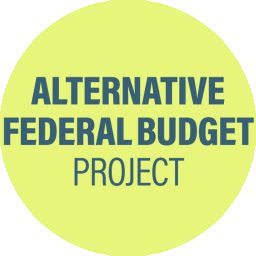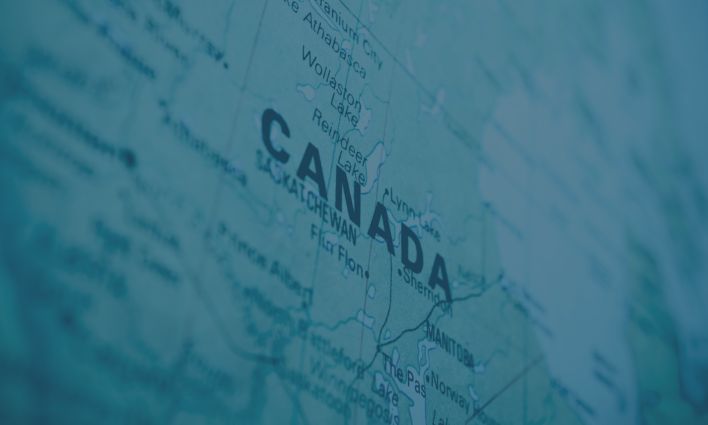Introduction
Canadians are proud of our public health care system, a responsibility shared among all levels of government. But polls show confidence in the ability to access care is declining. In the face of long waits in emergency rooms and for medically necessary procedures, Canadians are turning to private, for-profit care in increasing numbers.1
The crisis in health care, arguably exacerbated by the failure of policymakers to address well-known problems around health human resources, is being exploited by for-profit private clinics, investors, and their government allies.
As health minister Jean-Yves Duclos stated in his annual report on the Canada Health Act, “Universal, accessible, and publicly funded health care is a point of pride for Canadians, and protecting it is a priority for our government. Collectively, we have made the choice to leave no one behind and deny no one necessary care, regardless of their ability to pay.”2
Canadians must be protected from privatization. We must take action to improve health care outcomes, solve the health human resources crisis, and establish new universal programs for mental health, dental care, and prescription drug coverage.
Overview
The pandemic has taken a terrible toll on the health care system. Many care providers are frustrated and burnt out, driving them to change careers, take early retirement, or leave the public system to work for higher-paid private agencies.
In the aftermath, patients can’t always get the care they need. Operating rooms sit empty for want of staff, and people die in waiting rooms while overstretched health care workers scramble to triage those seeking urgent care.
The public’s frustration and diminishing confidence has emboldened efforts by some provincial governments to promote further privatization of medically necessary services. This has created the greatest threat to health care in several generations. Across Canada, provinces are using public health care dollars to fund publicly insured services performed in for-profit private clinics.
The Canadian Health Coalition, a national organization comprising frontline health care workers’ unions, community groups, and public health experts, has recommended that the federal government work with the provinces and territories to increase federal funding through the Canada Health Transfer to create accountable funding while improving outcomes for people across Canada through new public health care programs such as dental care and pharmacare.3
The 2023 budget announced $198 billion over 10 years, including $46 billion in new Canada Health Transfer funding and $25 billion over 10 years through bilateral agreements with the provinces and territories.4 But concerns remain that the increase to the Canada Health Transfer and the bilateral agreements may not improve care if they are without conditions and accountability.
For example, Canada Health Transfer funding from the federal government to the provinces and territories does not actually have to be spent on health care.5 As a result, the federal government promised in the 2023 budget to “ensure that new federal investments are used in addition to provincial spending, and that provinces and territories do not divert away health care funding of their own.”6
Enforcement of the Canada Health Act to protect patients
The health minister’s annual report on the Canada Health Act cited eight provinces contravening the Act and withheld $82 million in respect of patient charges levied during 2020-21 for medically necessary services that should be accessible to patients at no cost.7
Beyond paying for insured services out-of-pocket, patients may face efforts by medical care providers to “upsell” them on more expensive, more profitable, and uninsured services.
The health care workforce crisis
Despite the influx of billions of dollars from Ottawa, and the promise to make supporting health care workers a priority, provinces mostly failed to address nursing shortages, save for some positive steps taken in Nova Scotia and British Columbia. The latter became the first province in Canada to adopt minimum nurse-patient ratios.8
The problem also extends to other health care professions, where caregivers increasingly leave the public system to work in private agencies that provide better pay and working conditions. This tightens the shortage of workers in public hospitals, forcing governments to contract staff from for-profit private agencies at increased cost.
Wasteful spending on for-profit private health care delivery
Relying on for-profit private care increases the costs borne by public health care budgets. For example, the cost of a carpal tunnel surgery averaged $908 in the private sector in Quebec compared to $495 in the public sector; a short colonoscopy cost $739 in the private sector compared to $290 in a public health care setting.9 A CBC study found that “knee replacement surgery in a public hospital, paid by the province, costs about $10,000. The same surgery in a private clinic can reportedly cost patients up to $28,000.”10
Promoting the universality of health care services
A Health Canada study found that the notion of universality has wide public support, noting, “Participants were asked to name the best and worst things about the Canadian health care system. The best things mentioned always included the concept of universality.”11 The 2023 budget reaffirmed this view, stating, “Canadians are proud of our universal publicly funded health care system. No matter how much money you make, or where you were born, or what your parents do, you will receive the care you need.”12
But many essential health care services—such as services around mental health, substance use, oral and dental care, and pharmacare—are not provided under our public health care system.
Mental health, suicide prevention, and substance use
About a third of people in Canada will experience a mental illness or substance use disorder.13,14 And yet one-third of Canadians aged 15 or older who reported needing mental health care said their needs were not fully met.15 People can’t get the mental health care they need because it is either not available or not covered by provincial health insurance.
Millions of Canadians do not have a family doctor. When a person in crisis is treated in a hospital setting, they are often discharged without adequate services in the community to support their recovery. Services like counselling and psychotherapy, case management, peer support, and substance use treatments are not part of provincial health insurance plans and therefore must be accessed through limited employer or private insurance plans, or paid for out of pocket.
Canada is launching a three-digit (988) suicide and mental health crisis helpline in November 2023. This helpline will save lives and offer referral pathways to mental health supports offered in a caller’s community. We must ensure adequate investment in 988’s infrastructure, staffing, and funding for community providers delivering mental health and crisis supports and programs.
Dental care and universality
Proper dental care is an essential part of everyone’s health, but it has been excluded from our public health care system. About one-third of Canadians have no dental insurance.16 Even for people who do have dental coverage, regions with lower-income communities and Indigenous communities, including remote communities, have limited access to dental care providers, and many still struggle with co-pays and yearly limits.
In 2022 the interim Canada Dental Benefit was enacted for children under 12. It has already helped more than 240,000 children receive the dental care they need. The 2023 budget announced $13 billion over five years, starting in 2023-24, and $4.4 billion ongoing to Health Canada to implement the Canadian Dental Care Plan. The plan will provide dental coverage for uninsured Canadians with annual family income of less than $90,000, with no co-pays for those with family incomes under $70,000.
A public and universal pharmacare program
The latest research looking at pharmaceutical drug use during the pandemic shows immense disparity in access to medicines in Canada. If you are an immigrant or racialized person, you are much more likely to report that the pandemic affected your prescription drug coverage.17
Prescription medicine is nothing short of medically necessary and should be covered for everyone, whether you are inside a hospital or not. When the Canada Health Act is brought forward, it should commit to public universal coverage. As the health minister said, “Under the Canada Health Act, it is made clear that no Canadian should be paying out of pocket for medically necessary services.”18
Investing where health begins
Health begins where we are born, grow, live, work, and age.19 It is influenced by these social determinants more than by access to medical care.
We can help slow the flow of sickness into our clinics and hospitals by investing more urgently in the social supports that promote health (see Health Equity chapter).
Actions
The AFB will ensure that health care dollars are not spent on private, for-profit clinics, which put Canadians at risk of user fees and extra billing and waste public dollars on excessive profit-taking.
The AFB will enforce the principles and conditions of the Canada Health Act, beginning with funding more robust monitoring and sanctioning capacity by Health Canada to ensure Canadians are not faced with extra billing, user fees, and diminished access to health care as provinces move to for-profit care providers.
The AFB will provide targeted federal funding to shore up the retention of nurses, doctors, and other health care workers. This will include funding to implement minimum nurse–patient ratios, create tailored mental health programming, incentivize work in the public system over costly private agencies, create professional development opportunities, and implement violence-prevention infrastructure in health care settings.
The AFB will extend the principle of universality to dental care. This universal dental care program would cover everyone equally, including the self-employed or gig workers who have no benefits, but have a family income of over $90,000. The AFB will launch the Canadian Dental Care Plan with full implementation by 2025, providing universal coverage to everyone in Canada.
In keeping with recommendations from migrant rights advocates, the AFB will extend the Interim Federal Health Program to temporary foreign workers while the provinces work to change provincial legislation on health care coverage (see Immigration chapter for more details).
Part of the immigration application review and decision-making process involves Immigration, Refugees, and Citizenship Canada decision-makers determining whether an individual might reasonably be expected to cause excessive demand on health or social services in Canada.20 This “excessive demand” provision is discriminatory towards people with disabilities and individuals with severe illnesses. The Standing Committee on Citizenship and Immigration has recommended the repeal of the “excessive demand” provision since December 2017.21 The AFB will repeal this provision (see Immigration chapter for more details).
The AFB will move forward with the Canada Pharmacare Act, to provide free coverage for prescribed medicines to everyone in Canada, funded with $3.5 billion for essential medicines as recommended by the 2019 government-appointed Advisory Council on the Implementation of National Pharmacare, led by Dr. Eric Hoskins.22
The AFB will establish the Canada Mental Health Transfer at $5.3 billion annually over five years amounting to 12 per cent of current health care budgets. This new transfer would have 50 per cent of funding earmarked for community mental health and substance use health care providers. This funding will help alleviate the strain currently placed on emergency departments and better prepare the medical care and community care systems to respond to the anticipated demand for mental health and crisis supports and programs following the launch of the 988 suicide and mental health crisis helpline.
The AFB will increase investments to end the health care human resources crisis, providing $3.2 billion over five years to the provinces and territories for the hiring of 7,500 new family doctors, nurses, and nurse practitioners. In addition, as promised, the AFB will train up to 50,000 new personal support workers and fund their guaranteed minimum wage of at least $25 per hour.
This AFB will introduce and pass the Safe Long-Term Care Act by 2025, which must enforce national standards as well as ensure patients receive at least four hours of direct care daily. Additionally, the AFB will provide funding to promote publicly owned and non-profit long-term care facilities while phasing out for-profit investors (see Seniors’ Care chapter).







